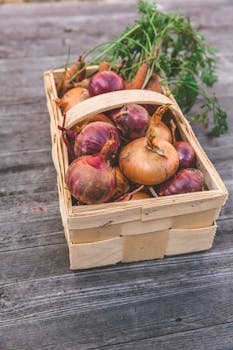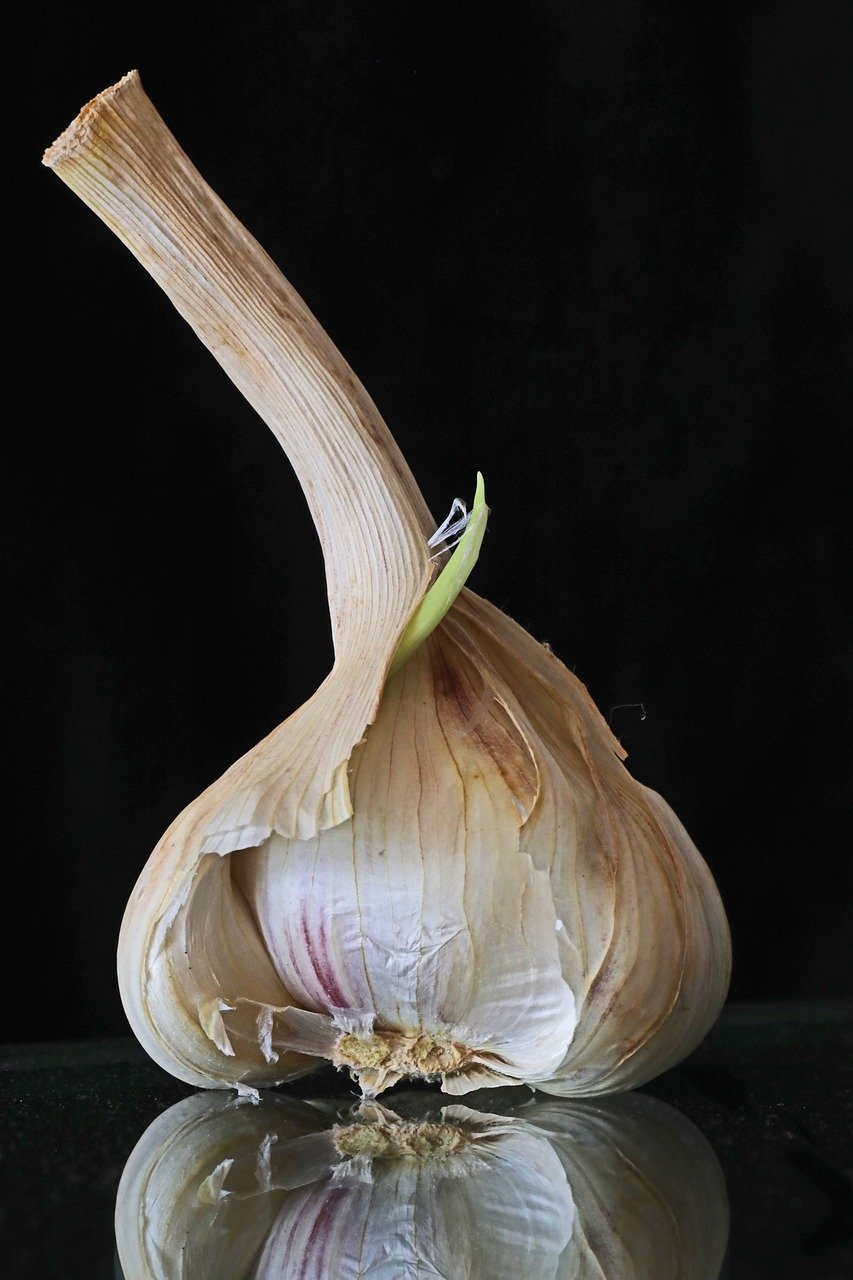
Onions are a popular choice for vegetable gardens in the Pacific Northwest. They grow well in our climate and offer a strong flavor to many dishes. Planting onions alongside certain companions can enhance growth, deter pests, and attract beneficial insects.
Choosing the right plants to grow with onions can make a big difference in garden health and yield. Some plants help repel pests that traditionally target onions, while others improve soil conditions. Gardeners in the PNW can find a variety of compatible plants that support their onion crops and create a thriving garden ecosystem.
By knowing which companions to select, gardeners can boost their onion harvests and improve their overall gardening success. This article highlights ten excellent companions for onions, ensuring a productive and balanced vegetable garden.
Benefits of Companion Planting with Onions
Companion planting with onions offers multiple advantages. It can improve pest control, enhance soil health, and attract helpful insects to a garden ecosystem. These benefits work together to create a thriving environment for plants.
Pest Management Through Natural Means
Onions have a strong scent that can deter many common garden pests. Among these are aphids, spider mites, and carrot flies. By planting onions alongside other vegetables, gardeners create a natural barrier that keeps these pests away from more vulnerable plants.
For example, planting onions near carrots can protect carrots from their main pest, the carrot fly. This natural form of pest control reduces the need for chemicals, which is better for the environment.
It’s essential for gardeners to choose companion plants wisely, ensuring they can coexist well with onions. This natural pest management plays a vital role in maintaining a healthy garden.
Soil Health and Crop Rotation
Companion planting with onions can lead to improved soil health. Onions have a unique root structure that helps break up compacted soil. This promotes better water drainage and air circulation, which is beneficial for roots.
Rotating crops with onions also helps prevent soil depletion. When onions are grown in a rotation, they can replenish nutrients in the soil. They also help reduce the spread of soil-borne diseases that affect other plants.
By maintaining healthy soil and practicing crop rotation, gardeners can enhance productivity. Healthy soil supports not just onions but a variety of other companion plants.
Attracting Beneficial Insects and Pollinators
Onions can attract beneficial insects to the garden. These insects include ladybugs and lacewings, which are natural predators of harmful pests. Their presence helps maintain a balanced garden ecosystem.
Additionally, onions are appealing to pollinators, such as bees. When planted alongside flowering plants, they can contribute to attracting more pollinators. This leads to better pollination of nearby crops and can increase yields.
Creating a diverse garden with onions and companion plants not only adds beauty. It also helps support the natural cycle of life, fostering a healthier garden environment.
Best Companion Plants for Onions
Choosing the right plants to grow alongside onions can enhance growth and improve yield. Certain combinations can deter pests and provide better growing conditions. Here are some of the best companions for onions.
Leafy Greens and Brassicas
Lettuce and spinach are excellent companions for onions. These leafy greens grow well together because they do not compete for the same nutrients. Onions can actually help deter pests that would typically bother lettuce, such as aphids and other insects.
Brassicas like kale and cabbage also thrive near onions. The compounds in onions can help stave off pests that usually target these plants. By planting them together, gardeners can create a diverse garden ecosystem that promotes healthier growth and reduces the need for pesticides.
Nightshades and Umbellifers
Tomatoes are known to grow well with onions. The presence of onions can help keep specific pests away from tomatoes. These two plants can share garden space effectively without harming each other’s growth.
In addition, umbellifers like carrots benefit from being near onions. The strong scent of onions can confuse carrot flies, reducing their impact on carrot crops. This pairing helps create a balanced garden and can lead to better vegetable production.
Beneficial Aromatic Herbs
Herbs such as chamomile and parsley act as great companions for onions. Chamomile can enhance the flavors of nearby plants while attracting helpful insects. Its flowers can attract pollinators, which benefits the whole garden.
Parsley also complements onions well. It can repel certain pests and attracts beneficial insects to the garden. The combination of these herbs with onions can create a more vibrant garden space, boosting both health and yield.
Understanding Companionship Between Alliums
Alliums, like onions, garlic, leeks, and chives, are known for their strong flavors. They can enhance each other’s growth and deter pests when planted together.
The Allium Family Synergy
The allium family works well with each other (onions, garlic, and chives), they may help reduce pests that target other crops. For example, the strong scent of garlic can keep aphids away from nearby plants.
Alliums also have similar water and nutrient needs. This makes them efficient in garden spaces. Growing them alongside rosemary and thyme can provide flavor when cooking and can improve the health of the garden.
Plants like cabbage from the brassica family also benefit from alliums. The combination helps to deter harmful insects like cabbage moths, promoting healthier crops overall.
What to Avoid: Incompatible Plants for Onions
Certain plants do not grow well alongside onions. It is important to know which companions to avoid to ensure a healthy garden. Here are the key conflicts to consider.
Legumes and Plants with Conflicting Needs
Legumes, such as beans and peas, are not ideal companions for onions. They have different soil nutrient requirements. Onions prefer lower nitrogen levels, while legumes thrive on high nitrogen.
Additionally, planting onions with these crops can attract onion maggots and thrips. These pests may harm both plants, creating further issues in the garden.
Another plant to avoid is asparagus. This plant can compete for nutrients and space, making it harder for onions to flourish. It is best to keep these plants separated.
Understanding Allelopathy and Plant Competition
Another reason to avoid certain plants is allelopathy. This term refers to the chemical release by some plants that can inhibit the growth of others. Sage is a prime example. It can release toxins that hinder onion development.
Celery and parsnips are also poor companions for onions. They compete for resources, leading to weak growth. By avoiding these plants, gardeners can maintain a healthier and more productive onion crop. Keeping onion beds free from these incompatible plants supports better yields and reduces pest issues.
That’s about all I’ve got on using onions in the companion planting method. Stay tuned for more PNW gardening tips.
Thanks for checking out the article! If you’re interested in other similar posts check out one of these:

